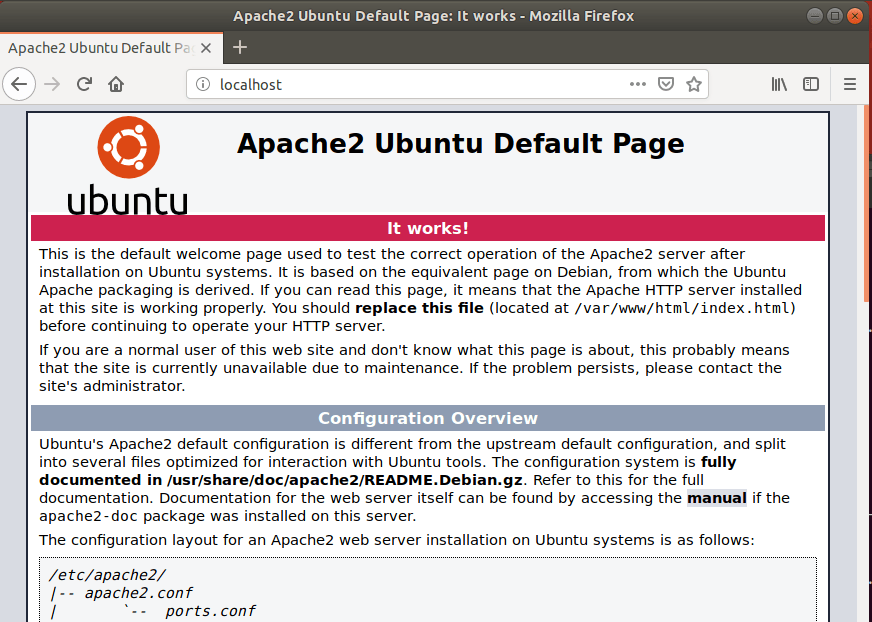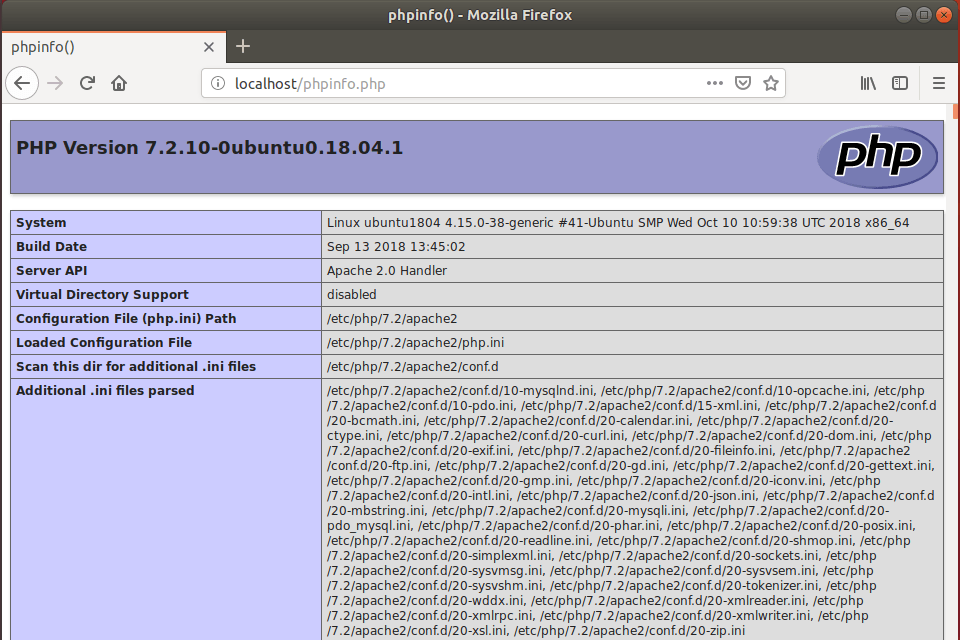Parvula CMS offers features that may not be available to other PHP-based CMS, like WordPress Joomla, or Drupal. For one, it doesn’t need a database server, all its data is simply stored in the file system (file-based, flat file CMS). It also provides native markdown WYSIWYG support, SEO friendly, flexible CSS framework with no installation required. For more about Parvula, please check its homepage. To get started with installing Parvula, follow the steps below:
Install Apache2 HTTP Server
Parvula CMS requires a web server and the Apache2 HTTP server is the most popular open-source web server available today. To install the Apache2 server, run the commands below: After installing Apache2, the commands below can be used to stop, start and enable the Apache2 service to always start up with the server boots. Now that Apache2 is installed. to test whether the web server is working, open your browser and browse to the URL below. If you see the page above, then Apache2 is successfully installed.
Install PHP 7.2 and Related Modules
Parvula CMS is a PHP-based CMS and PHP is required. However, PHP 7.2 may not be available in Ubuntu’s default repositories. To run PHP 7.2 on Ubuntu 16.04 and previous, you may need to run the commands below: Then update and upgrade to PHP 7.2 Next, run the commands below to install PHP 7.2 and related modules. After installing PHP 7.2, run the commands below to open the PHP default configuration file for Apache2. The lines below are a good setting for most PHP-based CMS. Update the configuration file with these and save. Every time you make changes to the PHP configuration file, you should also restart the Apache2 web server. To do so, run the commands below: Now that PHP is installed, to test whether it’s functioning, create a test file called phpinfo.php in the Apache2 default root directory. ( /var/www/html/) Then type the content below and save the file. Next, open your browser and browse to the server’s hostname or IP address followed by phpinfo.php You should see the PHP default test page.
Download Parvula Latest Release
To get Parvula’s latest release you may want to get it from GitHub. Use Composer and git to download the latest version. After installing curl and Composer above, change into the Apache2 root directory and download Parvula packages from GitHub. Then run the commands below to set the correct permissions for the Parvula root directory and give Apache2 control.
Step 4: Configure Apache2
Finally, configure the Apahce2 site configuration file for Parvula. This file will control how users access Parvula content. Run the commands below to create a new configuration file called parvula.conf Then copy and paste the content below into the file and save it. Replace the highlighted line with your domain name and directory root location. Save the file and exit.
Enable the Parvula and Rewrite Module
After configuring the VirtualHost above, enable it by running the commands below Then open your browser and browse to the server domain name. You should see the Parvula setup wizard complete. Please follow the wizard carefully. You should then see Parvula’s default home page. To login to the backend portal, type: The username and password can be found in this file. cat /var/www/html/parvula/data/users/users.php Congratulation! You have successfully installed Parvula CMS on Ubuntu 16.04 | 18.04 and 18.10.



